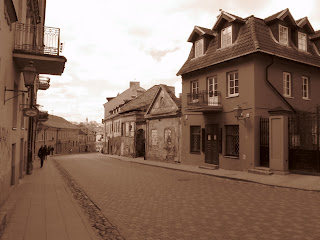The new billionaires per city Forbes ranking is
out with Moscow leading the list and relegating the long-time champion, New York, to a second place. The new podium is: Moscow - 79; New York - 59; London - 41.
This is part of the general trend which sees ever more millionaires and billionaires sprouting up in the emerging economies (at the forefront of this movement, the BRIC nations produced some 108 new billionaires this year). But the ranking itself does truly reflect the situation of the respective cities. For one thing the methodology is somewhat shady. Forbes counts the number of billionaires in the respective cities proper, which means that Beverly Hills residents are not part of LA.
Second, many if not most of those "international" magnates still have secondary (or even primary) residences in London and New York. Their kids go to school there. Their wives shop there. They have investments and bank accounts there. Without those
pieds-a-terre in the West their lifestyles would suffer considerably. Indeed, the importance of London for Russian oligarchs is widely underestimated, which is precisely why travel bans can be so effective a foreign policy tool.
The big question, however, is how this will affect foreign policy. Though every Sovietologist or Russia expert has his or her own theory, the truth is that they often fail to foresee any of the big changes in this country's direction. I do not purport to have this secret knowledge - my point is that Russia's foreign policy (and indeed domestic policy, for that matter), is somewhat mercurial.
One of the most interesting pieces of insight on this topic was presented a while back Anne Applebaum, who
remarked that the pace and tone of the country's internal dynamics are set to the rhythm of the price of oil. The theory holds pretty damn well, and not just for internal issues - Russia invaded Georgia when oil was at a high of 91$ a barrel.
To a certain extent this is natural: whenever any person or entity is in a position of strength they tend to be tougher in their relations with others. But this goes a bit further than that. Russia has been lagging when it comes to reform at least since the Tsarist times. Moreover, its messianic streak and need of protecting its vast borders through endless expansion have inflicted great calamities on its neighbors more than once.
Not that the connection is direct - the billionaires now living in Russia have little interest in re-invading Georgia or seizing Eastern Ukraine. But their sheer number is a sign of the current economic power that Russia wields, and that the world, particularly a bustling Asia, are hungry for the raw materials and semi-finished products it provides - oil, gas, steel, coal, fertilizer etc. The ensuing confidence may very well put an and to the half-hearted anti-corruption and modernization program that Pres. Medvedev has embarked upon (which is badly needed; the road from Moscow to Sochi, future Olympic city, costs so much that it may be as well made of a nine-inch layer of foie gras; other outrageous examples can be found in
here (New Yorker Navalny interview) - my personal favorite are the fur coats for psychiatric patients). Moreover, it goes to show that the immense gap between the dearth that is much of Russia and a swaggering Moscow, is as big as ever.




















